Join Us
Join our team of talented autism health professionals.
Occupational Therapist
What Does an Occupational Therapist Do?
An Occupational Therapist (OT) is a healthcare professional who helps individuals of all ages regain or develop the skills needed for everyday activities, or “occupations.” These activities may include self-care tasks like dressing or eating, work-related tasks, leisure activities, or school-related tasks. OTs assess their clients’ physical, cognitive, emotional, and environmental needs to develop personalized treatment plans aimed at improving their independence and quality of life. They use a variety of techniques, exercises, and adaptive equipment to help clients overcome challenges and reach their goals.
Orchid Autism is currently seeking a highly seasoned Licensed Occupational Therapist to join our team of therapists. Our team is growing and we have superhero clients at our therapy center that would love to work with a dedicated OT that has pediatric experience.
- State of Michigan Occupational Therapy License
- Current registration with NBCOT and current licensure
- Availability Monday-Friday
- Pediatric Experience
- Monday-Friday
Work setting:
- In-person
Speech Language Pathologist
What Does a Speech Language Pathologist Do?
A Speech-Language Pathologist (SLP) is a healthcare professional who specializes in evaluating, diagnosing, and treating communication and swallowing disorders. We work with children and adolescents birth onwards, who may have difficulties with speech, language, voice, fluency, cognition, or swallowing. SLPs develop individualized treatment plans to help their clients improve their communication skills or overcome swallowing difficulties through various therapeutic techniques, exercises, and strategies.
Orchid Autism is seeking a Speech Language Pathologist who is passionate and skilled at helping children struggling with speech and language issues. A successful candidate will work directly with children of various ages, within classrooms, performing detailed evaluations and creating individualized treatment plans. This Speech Language Pathologist will also have to work with teachers, medical professionals and parents to develop a comprehensive treatment program that works best for each child.
- Work with pediatricians to coordinate care for patients throughout the hospital system.
- Create learning environments for children with speech, language, and communication disorders.
- Establish goals for each child and create a plan of treatment.
- Keep track of all patient plans, scores, records, and evaluations.
- Communicate with physicians about the progress of patients.
BCBA
What is a BCBA?
A Board-Certified Behavior Analyst (BCBA) is a specialized professional who holds certification granted by the Behavior Analyst Certification Board (BACB). They are experts in the field of applied behavior analysis (ABA), a discipline that applies principles of behavior to improve socially significant behavior and address issues such as learning difficulties, developmental disabilities, mental health disorders, and behavioral challenges. BCBAs typically have extensive education and training in behavior analysis, psychology, or a related field. They must complete specific coursework, gain supervised experience, and pass a rigorous examination to become certified.
- Assessment: BCBAs conduct comprehensive assessments to understand individuals' behavior patterns, strengths, deficits, and environmental influences. They use various assessment tools and methods to gather data systematically.
- Designing Intervention Plans: Based on assessment findings, BCBAs develop individualized behavior intervention plans (BIPs). These plans outline specific strategies and techniques to address challenging behaviors, teach new skills, and promote positive behavior change.
- Implementation: BCBAs often work directly with clients to implement behavior intervention plans. They may provide training to caregivers, educators, or other professionals involved in the client's care to ensure consistent implementation and effectiveness of interventions.
- Data Collection and Analysis: BCBAs continuously collect data on client behavior to monitor progress and make informed decisions about intervention strategies. They analyze data using quantitative and qualitative methods to evaluate the effectiveness of interventions and make necessary adjustments.
- Collaboration: BCBAs collaborate with interdisciplinary teams, including psychologists, educators, speech therapists, and medical professionals, to provide comprehensive care for clients. They participate in team meetings, share progress reports, and coordinate services to ensure a cohesive approach to treatment.
- Training and Supervision: BCBAs provide training and supervision to behavior technicians, paraprofessionals, and other professionals working in the field of ABA. They ensure that staff members are properly trained and competent in implementing behavior intervention plans and adhering to ethical standards.
RBT
What does a RBT Do?
A Registered Behavior Technician (RBT) is a paraprofessional who practices under the supervision of a Board-Certified Behavior Analyst (BCBA) or a Board-Certified Assistant Behavior Analyst (BCaBA). RBTs are crucial members of the Applied Behavior Analysis (ABA) therapy team, working directly with individuals with autism spectrum disorder (ASD) or other developmental disabilities.
- Implementation of Behavior Plans: RBTs work directly with clients to implement behavior intervention plans (BIPs) designed by BCBAs or BCaBAs. These plans outline specific strategies and techniques to address challenging behaviors, teach new skills, and promote positive behavior change.
- Data Collection: RBTs collect data on client behavior during therapy sessions. They systematically record information about target behaviors, interventions implemented, and client responses. Accurate data collection is essential for evaluating progress and making informed decisions about treatment.
- Assistance with Assessments: RBTs may assist BCBAs or BCaBAs in conducting assessments to gather information about clients' behavior patterns, skills, and environmental factors. They may administer assessment tools, interact with clients, and gather relevant data.
- Direct Interaction with Clients: RBTs spend significant time interacting with clients during therapy sessions. They provide instruction, support, and encouragement to help clients engage in targeted behaviors, learn new skills, and achieve therapeutic goals.
- Skill Acquisition: RBTs assist clients in acquiring and practicing a wide range of skills, including communication, social interaction, daily living skills, and academic skills. They use behaviorally based teaching techniques, such as discrete trial training (DTT) and naturalistic teaching strategies, to facilitate skill development.
- Behavior Management: RBTs implement strategies to manage challenging behaviors effectively. They may use techniques such as reinforcement, prompting, redirection, and functional communication training to address problem behaviors and promote appropriate alternatives.
- Documentation and Reporting: RBTs maintain detailed documentation of client progress, including session notes, data sheets, and progress reports. They communicate regularly with supervising BCBAs or BCaBAs to provide updates on client performance and collaborate on treatment planning.
- Professionalism and Ethical Behavior: RBTs adhere to the Professional and Ethical Compliance Code for Behavior Analysts set forth by the Behavior Analyst Certification Board (BACB). They maintain professional boundaries, respect client confidentiality, and conduct themselves in a manner consistent with ethical guidelines.
Front Desk Liaison
What Does a Front Desk Liaison Do?
Our front desk liaison provides clerical, secretarial, and receptionist support for the office staff and patients. They also will schedule appointments and create a positive first impression about the clinic.
- Demonstrates characteristics that support the values, vision, mission, policies and procedures of Orchid Autism
- Responds promptly, professionally and courteously to all customers’ needs
- Cooperates and communicates effectively with all Orchid Autism team members
- Contributes to continuous quality improvement efforts
- Completes tasks accurately and timely
- High School Diploma
- One year of medical office experience preferable
Equal Opportunity Employer of Minorities/Females/Disabled/Veterans

